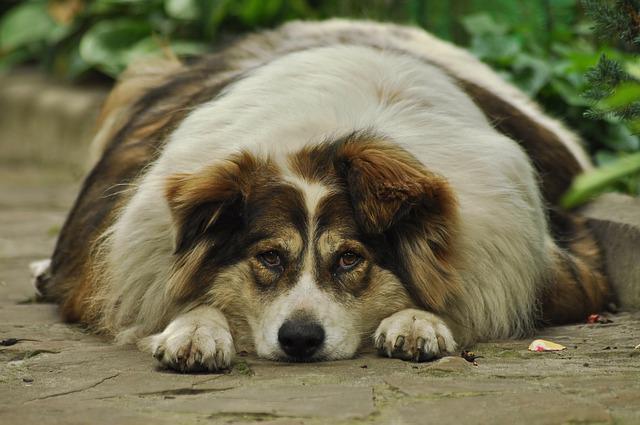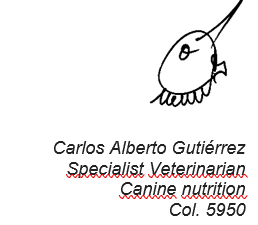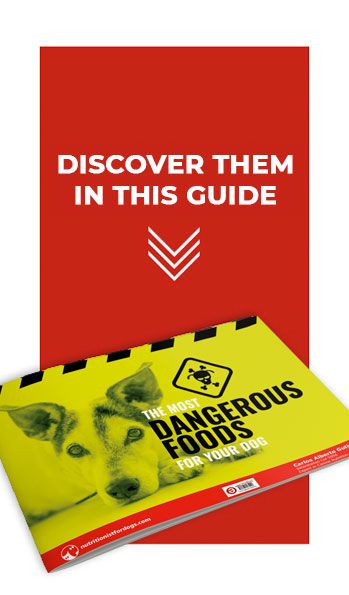
It’s important to know the general nutritional characteristics that a hypothyroid or Cushing’s patient should follow to avoid doing more harm than good.
Generally, these dogs tend to accumulate excess fat in the subcutaneous tissue, therefore their diet, apart from being low in fat, must also be low in carbohydrates.
In the article, “What should I feed my dog who suffers from hypothyroidism”, we mentioned the general characteristics of the diet.
Key nutrition for the hypothyroid patient:
- Hypocaloric diets. Avoid excess calories
- Diets high in animal protein
- Diets with moderate to low levels of fat
- Very low-carbohydrate, grain-free diets
- Orthomolecular nutrition supplementation
Let’s analyse these in more detail.
Hypocaloric diets
For the general public—even for most veterinarians—it is not easy to determine and manage caloric intake.
Is there a practical way to deal with the issue of caloric intake? Yes. What I teach people is to observe the body condition of their dog. If the diet is well prepared, it is a question of giving the suggested amount and then, as the days go by, observing whether the patient gains or loses weight, and then increasing, reducing or maintaining the amount of food, depending on what is being sought.
Have a look at this short video which I have prepared so you can learn how to assess body condition by look and feel. It is always worthwhile to use scales to weigh your dog. Learn how to easily assess your dog’s body condition.
Diets high in animal protein
Without a doubt, the main source of food for a dog is animal protein (meat, chicken, fish, beef, rabbit, etc.; don’t forget that it is a wolf; a carnivore. That does not mean that we should feed protein to all types of sick dogs. For example, dogs with liver problems are strictly prohibited from eating animal protein.
With the hypothyroid patient, this is NOT the case. The main source of food in this patient will be quality animal protein, using the same amount as you would give to a healthy dog.
Diets with moderate to low levels of fat
The metabolic state in this disease is reduced (low activity), so it is common to find overweight, “chubby” patients, so fat intake must be reduced in this type of patient. We must choose lean meat, skinless chicken, etc.
Very low-carbohydrate, grain-free diets
Dogs do not need carbohydrates; carnivores do not eat carbohydrates. Have you ever seen a wolf, lion or any other carnivore eating rice or corn? Humans and cows produce amylase in our mouths, which is the enzyme needed to break down carbohydrates. Why do dogs or any other carnivore NOT produce it? Because they DO NOT need it as they do NOT eat cereals or carbohydrates in general.
Dogs’ mouths, like those of all carnivores, do not generate amylase because they do not eat carbohydrates.
That does not mean that they will never eat them; in case of hunger, they would. Liver patients, as we have said, cannot eat animal protein and should eat little fat. What should we use? Well, cereals, like rice.
Therefore, in this type of dog we should provide carbohydrates from other sources of rapid assimilation, such as fruits, and in low quantities.
Orthomolecular nutrition supplementation
In general, all patients, humans or dogs, benefit from orthomolecular nutrients for their disease, for example, a heart disease patient must be supplemented with a nutrient (amino acid) called carnitine.
All these nutrients are easily obtained in herbal shops. We will look at them in a separate section, titled “Orthomolecular nutrition of the hypothyroid patient”.
If you want to learn more about orthomolecular nutrition for sick dogs, look here:
Sign up for the free online workshop. Click here.
Best regards!


